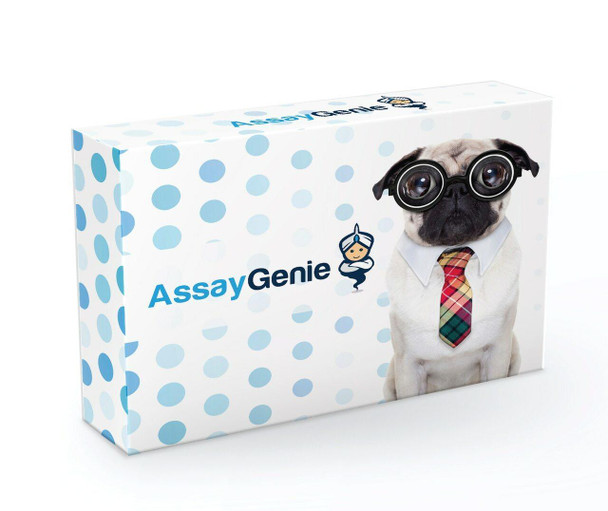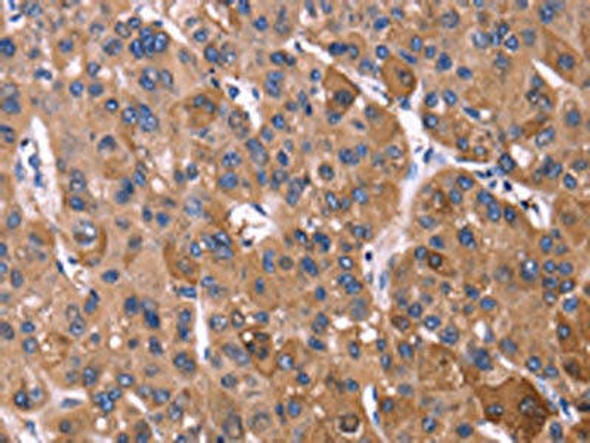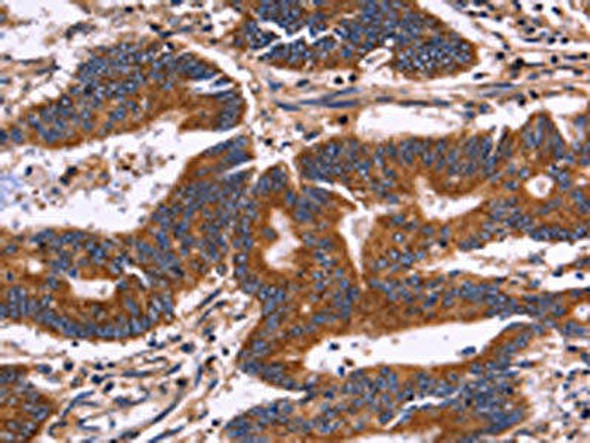Description
KIR2DL3 Monoclonal Antibody [P190IIC311AT] (CPAB0507)
The KIR2DL3 Polyclonal Antibody (CPAB0507) is a vital tool for researchers studying the KIR2DL3 protein, an important member of the killer cell immunoglobulin-like receptor (KIR) family involved in immune response regulation. This antibody, generated in rabbits, exhibits high specificity for human samples and has been extensively validated for Western blot applications.With its ability to specifically bind to the KIR2DL3 protein, this antibody enables precise detection and analysis of KIR2DL3 expression in various cell types.
Its utility in immunology and cancer research makes it an invaluable resource for investigating the role of KIR2DL3 in immune surveillance, infectious diseases, and cancer progression.The KIR2DL3 Polyclonal Antibody offers researchers the opportunity to deepen their understanding of the functions and interactions of KIR2DL3 in different disease contexts, paving the way for the development of novel therapeutic strategies targeting this important immune regulator.
| Product Name: | KIR2DL3 Antibody |
| Product Sku: | CPAB0507 |
| Size: | 5μg |
| Host Species: | Mouse |
| Immunogen: | Anti-human KIR2DL3 mAb, is derived from hybridization of mouse P3-x63-Ag8.653 myeloma cells with spleen cells from BALB/c mice immunized with recombinant human KIR2DL3 amino acids 19-161 purified from Ecoli. |
| Clone: | P190IIC311AT. |
| Reactivity: | Other bodies |
| Applications: | Western Blot, ELISA, Flow Cytometry |
| Purification Method: | KIR2DL3 antibody was purified from mouse ascitic fluids by protein-G affinity chromatography. |
| Isotype: | IgG2a |
| Background: | Killer-cell immunoglobulin-like receptors (KIRs), are a family of cell surface glycoproteins found on Natural Killer (NK) Cells, which are important cells of the immune system. They control the killing function of these cells by interacting with MHC class I molecules, which are expressed on all cell types. This interaction allows them to identify virally infected cells or tumor cells that have a distinctive low level of Class I MHC on their surface. The majority of KIRs are inhibitory, which means that their recognition of MHC suppresses the cytotoxic activity of their NK cell. Only a limited number of KIRs have the capacity to activate cells. The KIR genes are found in a cluster on chromosome 19q13.4 within the 1 Mb leukocyte receptor complex (LRC). KIR molecules are extremely polymorphic, meaning their gene sequences differ significantly between individuals, so that different individuals have different arrays/repertoires of KIR genes. |
| Synonyms: | Killer cell immunoglobulin-like receptor 2DL3, MHC class I NK cell receptor, Natural killer-associated transcript 2, NKAT-2, NKAT2a, NKAT2b, p58 natural killer cell receptor clone CL-6, p58 NK receptor, p58.2 MHC class-I-specific NK receptor, Killer inhibitory receptor cl 2-3, KIR-023GB, CD158 antigen-like family member B2, CD158b2 antigen, KIR2DL3, CD158B2, KIRCL23, NKAT2, p58, NKAT, GL183, CD158b, KIR-K7b, KIR-K7c, MGC129943. |
| Storage Buffer: | For periods up to 1 month store at 4°C, for longer periods of time, store at -20°C. Prevent freeze thaw cycles. |









